'Capitalize on your quarantine': How small changes can have lasting impact during self-isolation
Looking for more of the best deals, latest celebrity news and hottest trends? Sign up for Yahoo Lifestyle Canada’s newsletter!
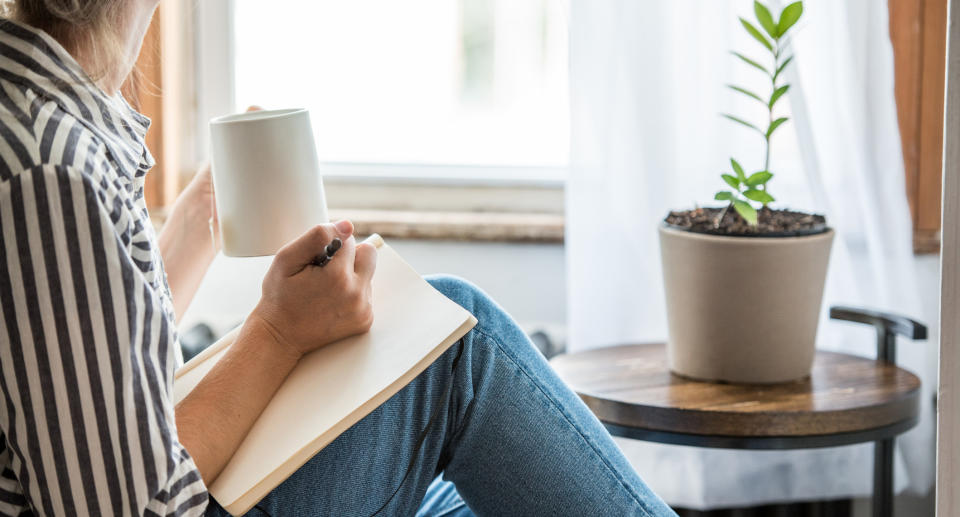
So, you’re stuck quarantining yourself at home thanks to COVID-19.
You’ve scrolled through social media more times than you knew was possible. You’ve successfully built your toilet paper castle complete with hand sanitizer moat. You watched both the entire Star Wars and Marvel sagas. There’s no sports. All the food that you “stocked up on” to be your “quarantine food” that was supposed to last you two weeks... well, it was gone a week ago. So what are you supposed to do?
In all seriousness, you and I both know it’s the right thing to do to help slow the spread and keep those with compromised immune systems and everyone else, safe and healthy. But you’re most likely feeling a little nervous because of everything going on. Maybe you don’t know what the future of your job looks like. Maybe you’re worried about family members or friends who you can’t see in person. Maybe everything you’re watching on the news is really starting to frighten you and you’re not sure how to handle it. Maybe you’re feeling anxious and unmotivated and you just want everything to go back to normal. And maybe you’re feeling a combination of some or all of those at once.
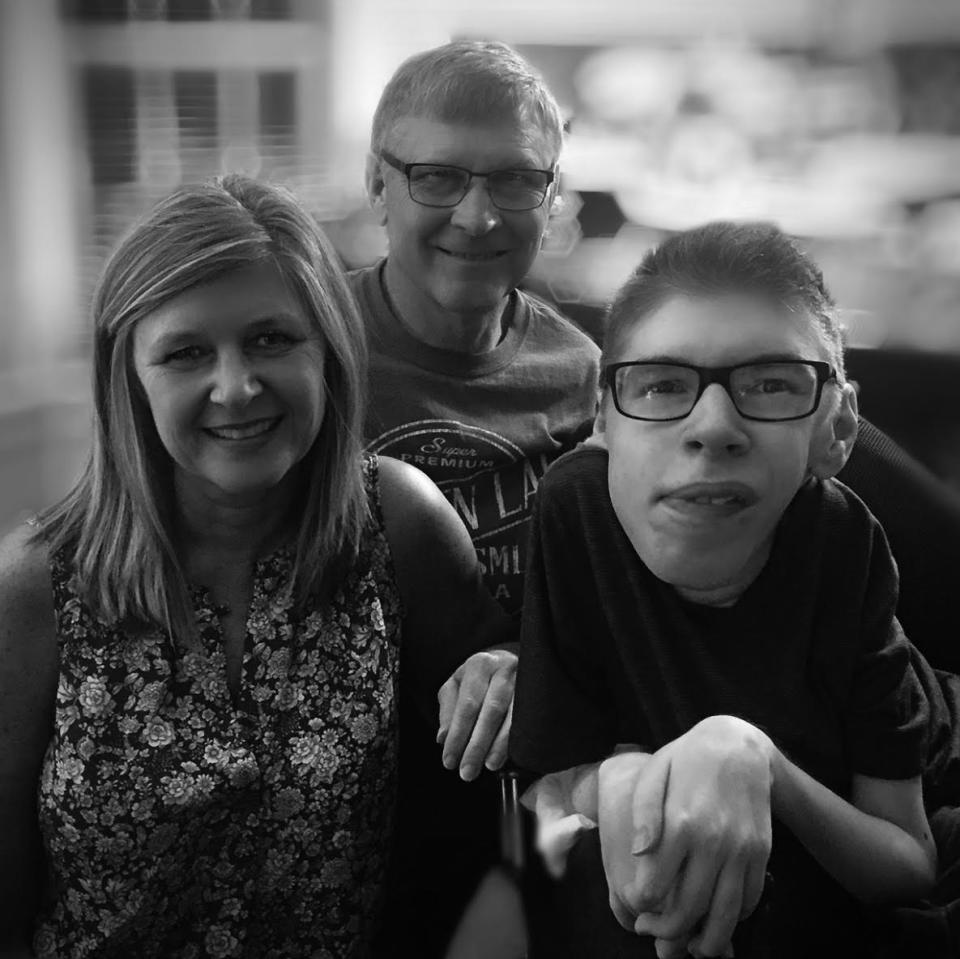
It’s understandable. This is an unprecedented event that we’re in the middle of, and to a very real degree it feels like life has been put on hold.
But I’d like to offer another outlook. An outlook that says that right now you’re being presented with a unique opportunity. One that I, and many people like me, have experienced often and have learned to use to our advantage.
I was born with a disease called Spinal Muscular Atrophy (SMA), a genetic disease that affects the motor nerve cells in the spinal cord. It doesn’t affect the mind or ability to form relationships, but rather progressively weakens muscles throughout the body making it difficult or impossible to walk, move hands and arms, eat and even breathe. Because of this (although it has varying degrees of severity) I have used a power wheelchair since I was two.
ALSO SEE: 95-year-old WWII veteran survives COVID-19: 'You do what you're told and you get right through it'
Besides being more susceptible to illness and spending a fair amount of time in hospitals, I lived a pretty normal life. I went to elementary, middle, and high school just like everyone else. I was involved in my church and went on mission trips with them. I loved to go to Disney, and out to movies with my family. Hanging out with my friends and play Risk or Settlers Of Catan and watching “The Office” was a routine event. I even coached kids basketball and flag football—the one time when the phrase “those who can’t do, teach” was actually true. I was an outgoing and involved person.
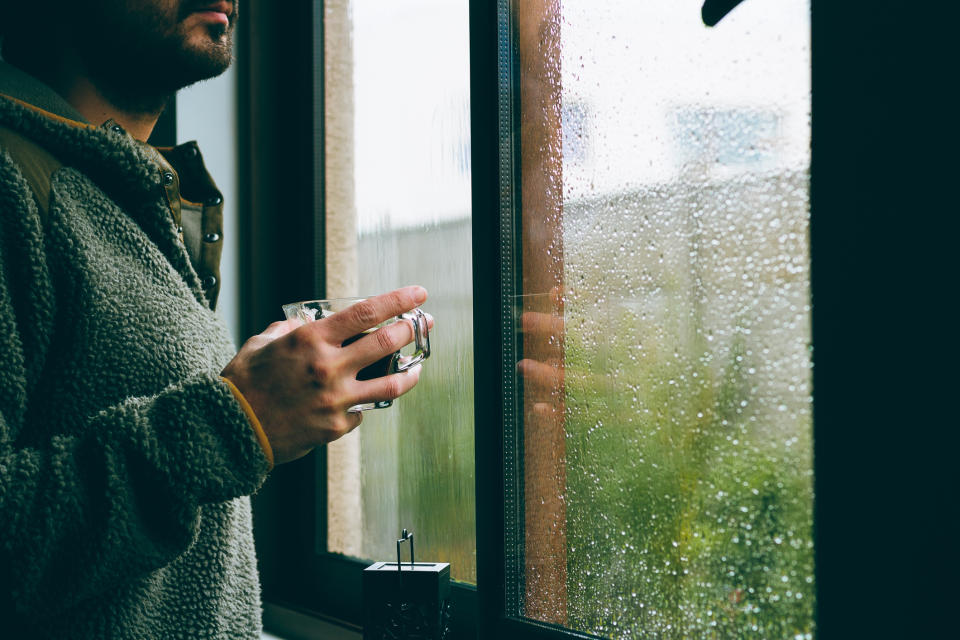
Up until four years ago, because of the general progression of my SMA, needing a new wheelchair, developing a vampire-like sleeping schedule and being under-nourished, I became homebound—essentially quarantined in my house. All of those activities that I loved to do were gone. Friends faded away. I felt isolated and frustrated.
At the same time (and for many of the same reasons) I lost the ability to do many of the things I loved at home; the most difficult was no longer being able to use my laptop. Graphic design was not only a passion of mine but also what I thought would be my career. I became even more frustrated, unmotivated, and felt like I had little to contribute to the world. It felt, like you might be feeling now, as if my life had been put on hold.
ALSO SEE: Is taking ibuprofen actually risky for COVID-19 patients?
As I grew weaker, a reality of life for me became needing to use multiple medical devices throughout my daily routine. Using a suction to help me clear secretions, an airway clearance device called Cough Assist that also helped strengthen my lungs, and a CPAP-type device called Trilogy to help me breathe while I sleep took up most of my day. To pass time, I binge watched an endless amount of Netflix, Prime Video, Hulu, or any other streaming service I could get my hands on with a free trial. On any given day I’d make it through at least a season of a show. I used it as a way of forgetting or escaping, even if just for a little while, the reality of what my life had become.
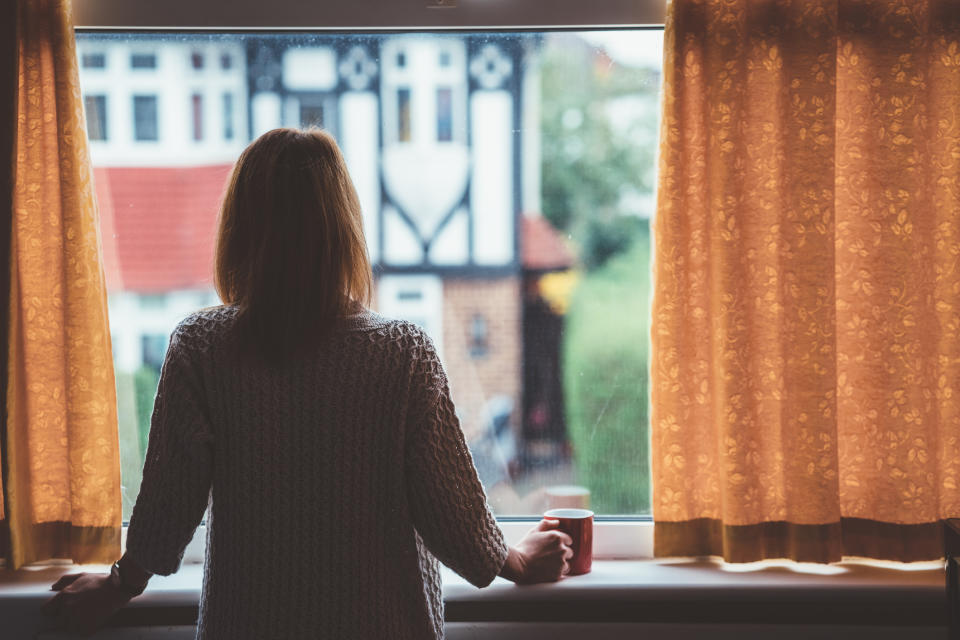
But of course, I didn’t forget and I couldn’t escape it. Instead, it just made things worse. I felt even less productive, even more frustrated and desperately wanted things to change.
You might be thinking that all of that sounds pretty grim. You’re not wrong. It was and still is from time to time and it’s an ongoing battle.
You might also be saying the same thing about the situation you’re in right now; that because of COVID-19 you’re entitled to not do anything, be scared and feel isolated. You might be right. But just because we’re entitled to something or to feeling a certain way doesn’t mean that it’s what’s best, or right for us. With that in mind we have to actively work to change our perspective on what’s happening. If we do, we can begin to use our circumstances to our advantage instead of the other way around.
So, how do we do that? How did I, and how can you capitalize on being quarantined?
For me it started with the realization that I was letting my life be dictated by circumstances. As soon as that happened, I began to see an opportunity, and way out. Not a way out necessarily of being homebound, or needing to use all those medical devices, or even of the abilities I lost—but rather a way out of the stagnate mental state I had locked myself into. It’s an opportunity that you have right now as well. All it takes is starting to make small choices and changes in your everyday life that will slowly shift your way of seeing things.
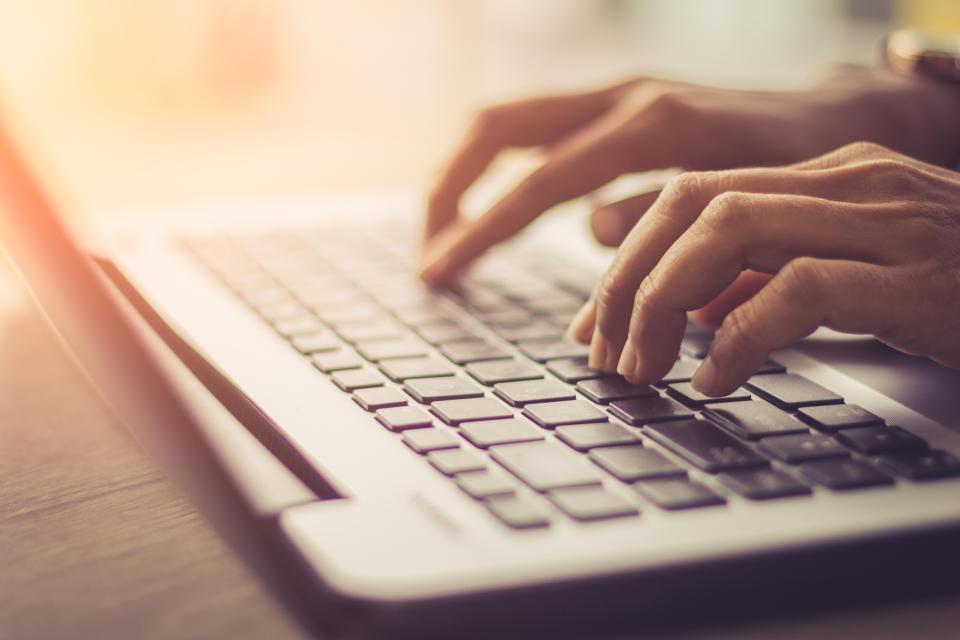
Right now, much like I had, you have an abundance of time. How you use that time time will greatly determine both your mood and your outlook on the future—which in turn, actually helps determine the state of your future.
I wasn’t using the time I had effectively. By changing my outlook, I saw that instead of viewing my days as simply time wasted, I needed to start looking at my days as an opportunity which I could use to better myself mentally, emotionally and physically.
ALSO SEE: 10 creative outdoor activities to keep kids moving at home
Instead of filling my downtime endlessly scrolling on social media and playing games on my phone, I started using that time to write. At first, I wasn’t great at it, but as I kept at it and started writing about my journey with SMA, I realized that not only did I enjoy it, but I was pretty good at it, too. Writing became the perfect outlet for all of my pent up creativity and all of my thoughts and feelings. As I wrote about my past it reminded me of the outlook I used to have on life which gave me perspective to begin to see it that way again.

Secondly, rather than just watching TV and wasting the time while I was using my various medical devices, I started reading If you knew me you’d know that this was monumental; I’ve always hated reading. In fact, hate might be too weak a word. I loathed reading. But I wanted to both expand my mind—start learning new things again—and improve my writing. I once heard that if you want to be a better writer, you have to read, so I set myself to it.
At first it was a struggle, but just like with writing, the more I preserved the more I actually began to enjoy it. I’m not sure that I even understand fully how much reading changed my mentality, but I think it had as much to do with what I read. Writers like C.S. Lewis, Charles Krauthammer and even Tim Tebow had a major impact on my outlook on life. The other book I started to read more of than ever before was the Bible, which helped me rebuild focus.
ALSO SEE: 'An incredible time for me': Selma Blair opens up about finding the 'gift' in isolation
I don’t know what your beliefs are, but for as long as I can remember I’ve been a Christian. Going to church and being involved in church activities was a major part of my childhood and teenage life. When I became homebound, it felt like both my physical and spiritual life had been put on hold. I didn’t stop believing, but I felt static and realized that my spiritual life had been built on going and doing rather than developing a real relationship with God.

As I began reading the Bible more often and praying more often with intention, my outlook on life completely changed: I now had hope. I could finally see that all of this time that I had was really a gift, and I had been looking at the situation from the wrong perspective. I believed that If I allowed Him to, God could use the situation I was in to make me into the person I was meant to be, and to do the things I was meant to do.
ALSO SEE: COVID 19 and babies: What you need to know
Take for instance writing. If I had I never become homebound and lost the ability to use my laptop and do graphic design, I would never have considered writing. But when I did become homebound, and when I started viewing my life through the lens of what I could do instead of what I couldn’t do—and allowing God to work through that—I found that I couldn’t imagine my life without it. And look where it’s led me, writing my first article as a freelance writer. All because I began using the time I had to make the most of my quarantine.
So we return to the question, how can you capitalize on your quarantine?
The answer is different for everyone, but I think the key is starting small. Pick one area of your life that if you made a few small changes every day you know your life would change for the better. It could be doing something creative like photography, painting, knitting, cooking, writing or something entirely different. I think we all have a creative nature inside of us, whether we think we do or not. Giving yourself the time and space to explore it is, in my opinion, essential in the formation of a healthy outlook on life.
Or maybe for you it’s doing something physical. I understand that can seem difficult right now because of circumstances. When I first started using all those medical devices—my equivalent to exercise—it was difficult for me as well. I didn’t want to have to use them and I resisted doing so for a long time because I knew they would just take away time from what I actually wanted to be doing. But when I finally started using them I felt like a different person. In the same way it may feel like since you can’t go to the gym that it’s not really worth working out, or maybe you’re not sure about getting out and taking around your neighbourhood. But doing those small physical activities can begin to make a difference in your outlook on your circumstances, just like using medical devices did for me.
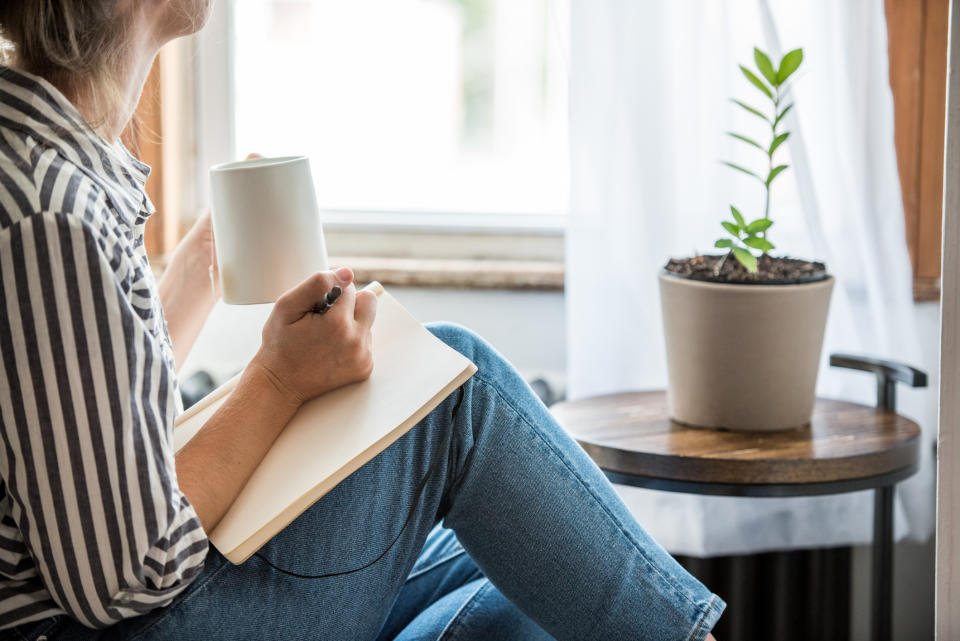
And finally, maybe it’s just setting aside some time to turn off the TV, set down the phone, and read a book or spend some time in prayer. For me, when I set aside time to read and pray, I find myself looking forward to that part of my day. I feel recharged and have a renewed sense of purpose. Whether, it’s at the beginning of the day or end, or maybe right in the middle, I think you’ll find the same will be true for you.
One other way of beginning to change our outlook on life is to simply do something kind for someone else. Especially during this time, I think everyone is in need of a little help. Reaching out to those around you and doing something kind not only helps your neighbours get through a rough time, but also reminds us that whatever we’re going through we’re not alone. Send someone a gift card, drop off take-out or groceries at their house or leave a bit of an extra tip when you order food. Everyone has their own story of how this pandemic is effecting them, and chances are that by the time it’s over we’ll all know of someone who had COVID-19, let’s make the story of this pandemic not how many lives were lost, but how we came together, cared for each other, and supported one another.
ALSO SEE: Here's what experts want people under 50 to know about COVID-19
Whatever way you choose, what matters most is that you recognize that you’re never going to have more time then you have right now. Now is your chance to start doing all of those things that you’ve continually said “I wish I had time for...” So start today. Start small. Capitalize on your quarantine. And maybe, by the time the pandemic is over, going back to “normal” will include a new outlook on life.
Stay safe. Stay healthy. And stay home.
Let us know what you think by commenting below and tweeting @YahooStyleCA! Follow us on Twitter and Instagram and sign up for our newsletter.



